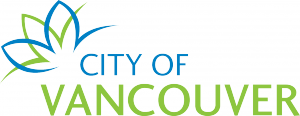
A few days ago Vancouver was considering becoming an open city, embracing open source, open standards and open data. This week, that idea became a reality as Vancouver City Council adopted Andrea Reimer’s proposal.
What does this mean in the short term? Likely not much. We are in the middle of a recession, which means there is probably little software aquisition going on and thus little new open source software. As open standards usually follow the software that uses them, little is likely to change on that front either.
Which brings us to open data, where we will likely see the most immediate change. Much of the data that the City of Vancouver could release they have already collected, such as geospatial or demographic data. To get a good idea of the vast amount of information that becomes avaiable when a government takes the leap, take a look at this list about data.gov, the new US Federal government website dedicated to releasing as much data as possibly freely.
In my own little part of the world, we in the OpenStreetMap community here in Canada have been collaborating with the federal government’s Geobase project to get their data imported into OSM. Sadly, much of the information there is second class, as provinces and municipalities keep their latest and greatest to themselves.
Hopefully this decision, and the City of Toronto possibly following suit, will encourage more and more municipalities across Canada to realize that the value they will get from freeing their data and adhering to open standards far eclipses the lost revenue they might have gotten otherwise.